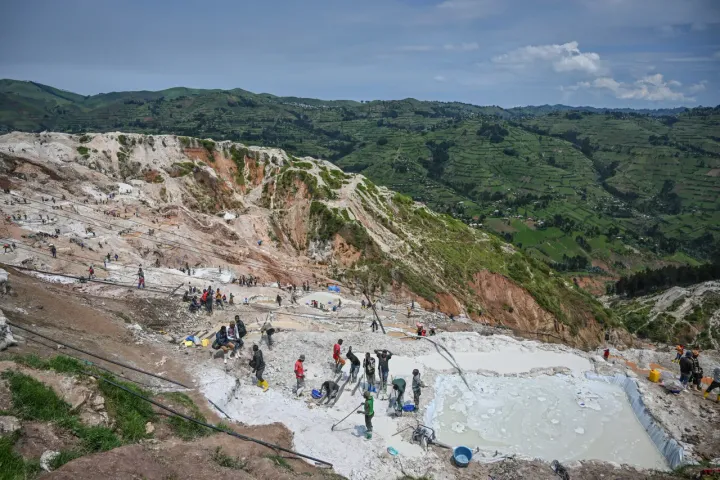By Sylvia Chebet
On November 1, Kenya's President William Ruto made an announcement that gladdened the hearts of frequent travellers like Wangari Muikia, who hops from country to country within the continent on business.
"By the end of this year, no African will be required to have a visa to come to Kenya," Ruto declared to a cheering crowd during an international summit in Congo-Brazzaville.
"Our children from this continent should not be locked in borders in Europe and also be locked in borders within Africa."
At the 23rd Global Summit of the World Travel and Tourism Council in Kigali three days later, Rwanda's President Paul Kagame echoed his Kenyan counterpart.
"Any African can get on a plane to Rwanda whenever they wish, and they will not pay a thing to enter our country," he said.
The decisions by Kenya and Rwanda to open their doors to fellow Africans bring the African Union's dream of visa-free travel within the continent closer to reality.
Africa unbound
For those like Muikia, managing director of the economic advisory services firm Expertise Global, the sheer convenience of travelling seamlessly within the continent without having to bother about inter-country travel restrictions is liberating in more ways than one.
"This easing of restrictions is fantastic," Muikia tells TRT Afrika. "I know what a pain it is to apply for visas. Now, people don't necessarily have to apply or jump through hoops to enter your country or other countries."
This is where the rubber meets the road for the African Continental Free Trade Area (AFCTA) agreement, a single unified market for the continent's 1.3 billion people that is estimated to be worth US $3.4 trillion.
As President Ruto of Kenya said, "Visa restrictions amongst ourselves are working against us. When people cannot travel, business people cannot travel, entrepreneurs cannot travel, we all become net losers."
Kagame, too, believes it will be a win-win for Africa if all countries are on the same page regarding removing travel barriers.
"We should not lose sight of our continental market," Kagame said. "Africans are the future of global tourism, and our middle class is tipped to multiply in the decades to come."
Muikia, an economist whose firm provides economic advisory services to governments, believes that a continent bursting with potential requires more linkages within itself. She hopes Kenya and Rwanda's move would trigger a "reciprocal effect" from other African countries, leading to something like Europe's Schengen zone.
"It's a good thing for labour to be able to go where labour is needed. It's good for people to move to where they feel safe and secure. It's good for governments to have young, able people who come into economies and work at all levels," says Muikia.
Other countries that have waived visa requirements for African nationals are The Gambia, Benin and Seychelles. According to Wangari, the impact will be felt when bigger, stronger economies on the continent follow suit.
In 2016, the AU launched an "African Passport", saying it would rival the European Union model in "unleashing the continent's potential". However, only diplomats and AU officials have been issued the travel document.
The African Passport and free movement of people are "aimed at removing restrictions on Africans' ability to travel, work, and live within their continent," the AU says on its website.
Potential pitfalls
As the march towards a visa-free Africa for Africans gains momentum, Wangari cautions that "we must not cheat ourselves that it will not come with challenges".
"For instance, how will we ensure we are not welcoming potential threats to our country? How do we manage illegal immigration?" she asks.
On the question of capital and labour influx, economists say that while this may look like an attractive proposition, low-quality human capital will yield little economic gains.
With several countries on the continent embroiled in political and civil strife, Wangari cautions that an influx of cheap labour could worsen existing unemployment.
"Such situations will mean tougher competition in an already saturated job market. If not carefully handled, this could brew resentment within a particular country. There are already people in that country looking for work, and you could be facing antagonism if they are denied," she tells TRT Afrika.
While a long list of pros and cons to a visa-free Africa exists, economists reckon the opportunities and challenges are worth weighing carefully to make a meaningful transition.
➤Click here to follow our WhatsApp channel for more stories.























